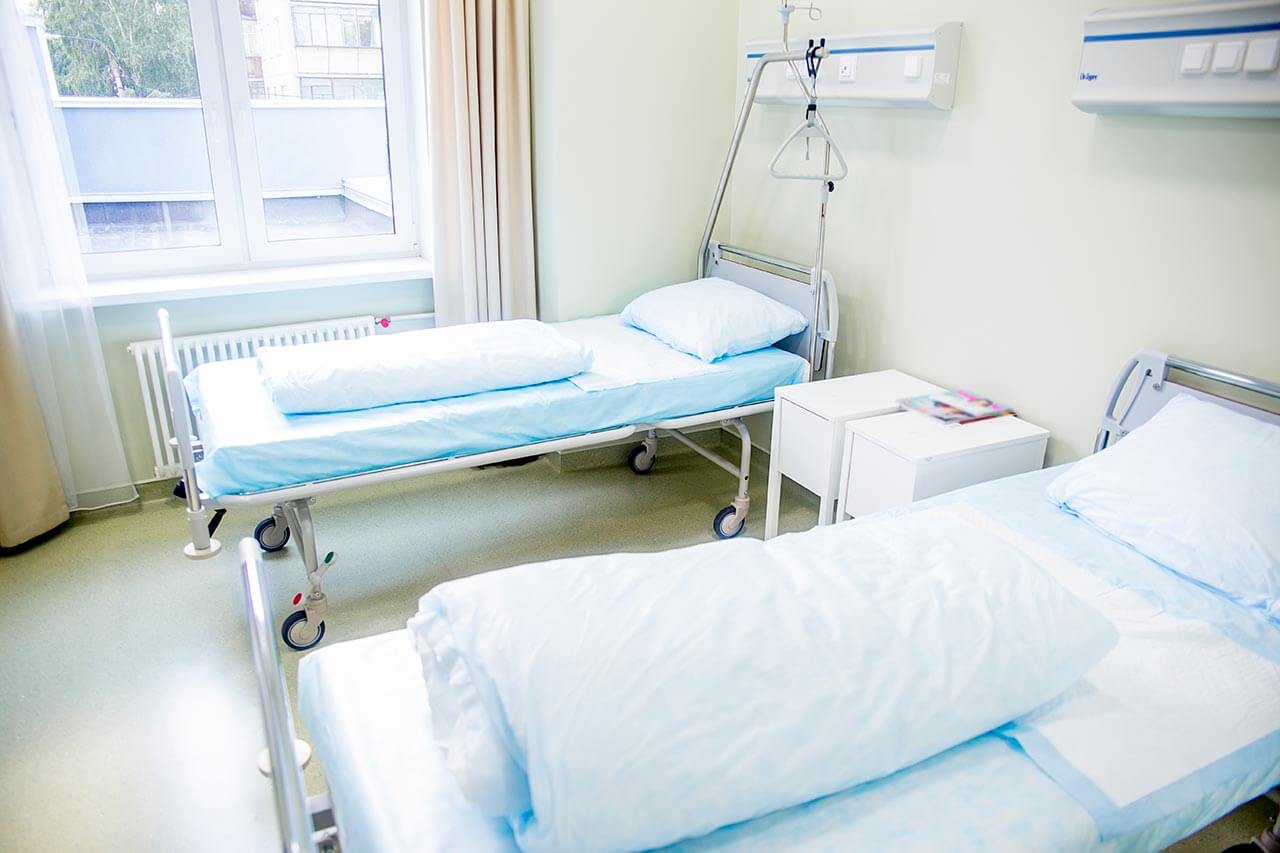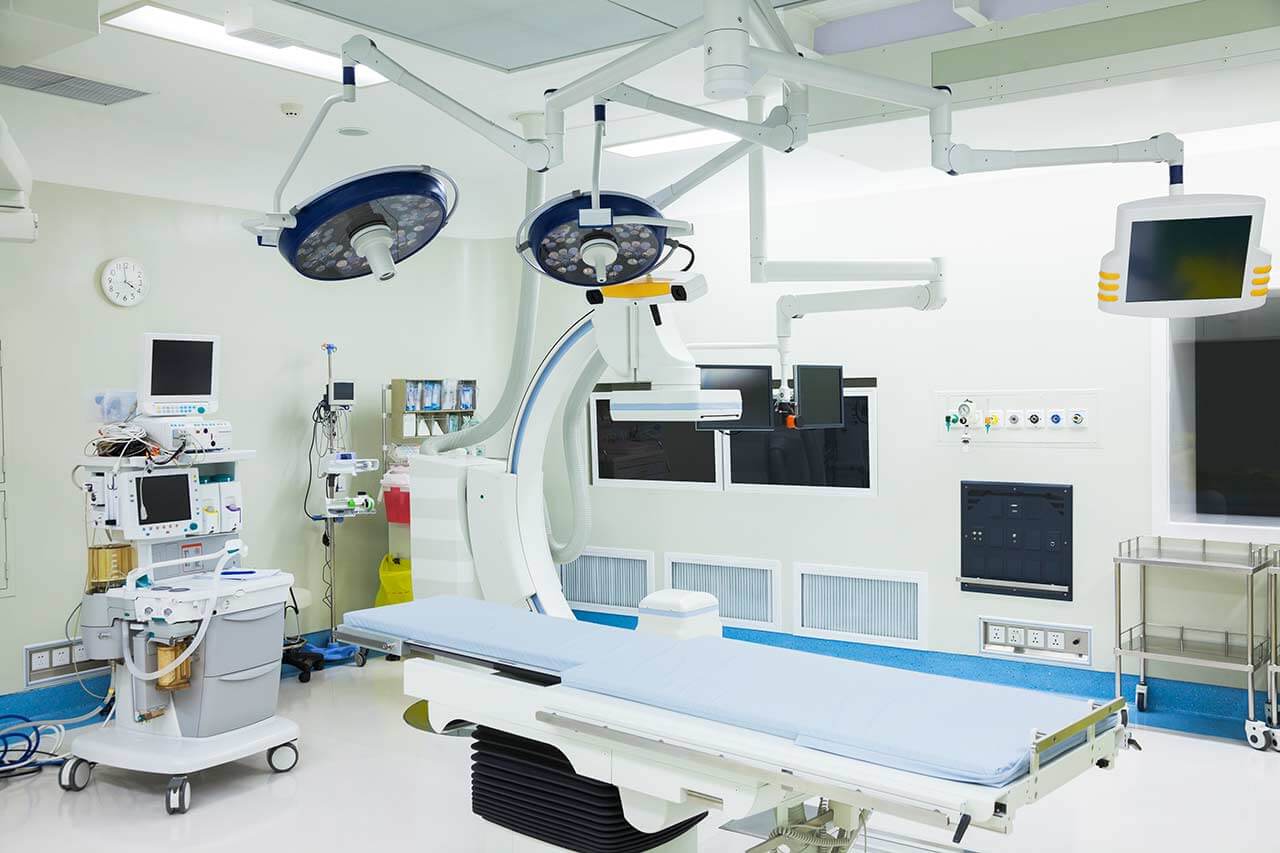
About the Department of Pediatric Oncology and Hematology at University Hospital Oldenburg
The Department of Pediatric Oncology and Hematology at the University Hospital Oldenburg provides a full range of medical services in its areas of specialization. The department is certified as the Children's Cancer Center in accordance with the OnkoZert standards and is also part of the European Reference Network. In addition, the department has been awarded the Ausgezeichnet. FÜR KINDER quality certificate, which is the most prestigious certificate in the segment of children's hospitals in Germany. The department treats young patients with solid tumors of various localizations, leukemia, and benign diseases of the hematopoietic system. The department has state-of-the-art medical equipment and has 12 beds. The medical facility takes care of the comfort of young patients, so it has wonderful play areas so that children can take a break from the therapeutic process. The medical team of the department uses only highly effective treatment methods in their work and follows the recommendations of the Society for Pediatric Oncology and Hematology (GPOH). It should be noted that the department has been operating for over 150 years and enjoys an excellent reputation in the national and international medical arena. The Head Physician of the department is PD Dr. med. Carsten Friedrich.
The department most often treats children with leukemia. This malignant disease is characterized by systemic damage to the bone marrow, in which healthy blood leukocytes are replaced by altered cells. Abnormal leukocytes do not perform their function and at the same time continue to actively divide, spread with the bloodstream, penetrate all organs, and cause pathological changes. Leukemia in children is manifested by rapid fatigue, periodic increases in body temperature without apparent cause, loss of appetite, weight loss, and other symptoms. Diagnosis for suspected leukemia includes a clinical examination, after which the pediatric oncologist listens to the complaints of the young patient and performs a complete blood count, a coagulogram, and a bone marrow puncture with subsequent cytological and cytochemical examinations; instrumental diagnostics are also performed: ultrasound scans, X-ray scans, and CT and/or MRI scans. Based on the results of the preliminary diagnosis, an individual treatment regimen is prescribed. An integral part of the therapeutic process is chemotherapy, the duration and intensity of which is determined by the treating oncologist. In some clinical situations, targeted therapy and radiation therapy may be used. The last-line treatment is a bone marrow transplant.
The specialists at the medical facility have excellent qualifications in the treatment of neuroblastoma, a malignant neoplasm that develops from the cells of the nervous system. Neuroblastoma is an aggressive malignant neoplasm with a tendency to grow rapidly and metastasize. Neuroblastoma usually develops in children under the age of 5 and is the most common type of solid tumor outside the brain in children. Neuroblastoma is most commonly located in the abdominal cavity and adrenal glands, but can also develop in the neck, chest, or pelvis. Diagnosis of a child with suspected neuroblastoma begins with a clinical examination and a series of laboratory tests; a neurological examination is also performed to assess the functions of the brain and nervous system as a whole, including memory, vision, hearing, muscle strength, balance, coordination, and reflexes. Instrumental studies are an integral part of the diagnostic process: X-ray, ultrasound, CT, and MRI. When planning the treatment, the doctors of the department focus on the risk group for neuroblastoma: it can be low, intermediate, or high risk. The risk group is determined based on the stage of the tumor, biochemical markers, genetic characteristics of the tumor cells, and the child's age. If the risk is low, surgical removal of the tumor and follow-up is sufficient; if the risk is intermediate, surgery and chemotherapy are sufficient; if the risk is high, the child needs intensive treatment that combines several methods (for example, surgery, chemotherapy, immunotherapy, and/or radiation therapy).
The department also regularly admits young patients with brain tumors, Wilms' tumor, lymphoma, rhabdomyosarcoma, retinoblastoma, osteosarcoma, and Ewing's sarcoma. For the treatment of the above oncological diseases, the department's medical team successfully performs surgical procedures, chemotherapy, radiation therapy, targeted therapy, immunotherapy, and other modern therapeutic procedures. A personalized treatment plan is developed for each child based on the diagnosis, stage of the oncological process, age of the young patient, and other factors.
The department's specialists understand that a cancer diagnosis is a serious challenge for a child and their family, so comprehensive support is provided. Qualified psychologists help cope with emotional difficulties, while art and music therapists reveal the creative potential of children. Clowns and animators create an atmosphere of joy and bring smiles to the faces of young patients. The staff strives to ensure that each child feels comfortable and can enjoy pleasant leisure time between procedures.
The department's range of medical services includes the following:
- Diagnostics and treatment of leukemia
- Diagnostics and treatment of neuroblastoma
- Diagnostics and treatment of brain cancer
- Diagnostics and treatment of Wilms' tumor
- Diagnostics and treatment of lymphoma
- Diagnostics and treatment of rhabdomyosarcoma
- Diagnostics and treatment of retinoblastoma
- Diagnostics and treatment of osteosarcoma
- Diagnostics and treatment of Ewing's sarcoma
- Diagnostics and treatment of other oncological and hematological diseases in children
Curriculum vitae
PD Dr. med. Carsten Friedrich graduated from the Charité – Berlin University Medicine. The specialist completed his internship at the University Hospital Hamburg-Eppendorf, followed by a residency in pediatric oncology at the University Hospital Leipzig. Dr. Friedrich's primary interest during this period was to conduct experimental and clinical studies in pediatric neuro-oncology. In 2020, Dr. Carsten Friedrich was appointed Senior Physician in the Department of Pediatric Oncology and Hematology at the University Hospital Oldenburg. The specialist currently holds the position of Acting Head Physician in the Department of Pediatric Oncology and Hematology at the University Hospital Oldenburg.
Photo of the doctor: (c) Klinikum Oldenburg AöR




